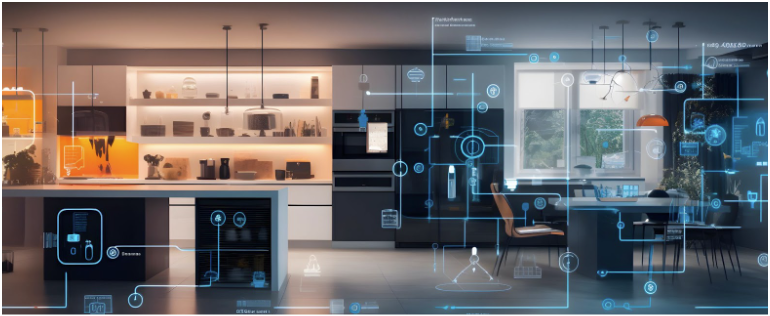
The kitchen has long been considered the heart of the home, where families gather, meals are prepared, and memories are made. As technology continues to advance, the kitchen is also evolving, becoming smarter and more connected than ever before. In this comprehensive guide, we'll explore how smart kitchen technology is shaping the future of kitchen remodels, enhancing convenience, efficiency, and the overall kitchen experience.
The Rise of Smart Kitchen Appliances
Smart Refrigerators
Smart refrigerators have transformed the way we store and manage our groceries. These high-tech appliances come equipped with features like cameras inside the fridge that allow you to check its contents remotely through a smartphone app. This helps you make grocery lists and minimize food waste by knowing what you have on hand. Some smart fridges even offer recipe suggestions based on the ingredients they detect.
Pros:
- Remote access to fridge contents
- Grocery management and inventory tracking
- Integration with voice assistants for hands-free control
Cons:
- Higher upfront cost compared to traditional refrigerators
Smart Ovens and Ranges
Smart ovens and ranges offer advanced cooking capabilities. They can be controlled remotely via smartphone apps, allowing you to preheat your oven, adjust cooking times, and monitor progress from anywhere. Some models come with built-in recipe libraries that guide you through the cooking process with step-by-step instructions and temperature recommendations.
Pros:
- Remote cooking control and monitoring
- Guided cooking with recipes and timers
- Improved cooking accuracy
Cons:
- Initial cost may be higher
- Learning curve for some advanced features
Smart Dishwashers
Smart dishwashers are designed to make dishwashing more efficient and eco-friendly. They can detect the level of soil on dishes and adjust water usage and cycle time accordingly. You can also schedule wash cycles and monitor their progress remotely. Some models even have Wi-Fi connectivity, allowing them to integrate with smart home systems.
Pros:
- Water and energy efficiency
- Remote control and monitoring
- Improved cleaning performance
Cons:
- Higher upfront cost
- Compatibility with home automation systems may vary
Voice-Controlled Kitchens
Integration with Voice Assistants
The integration of smart kitchen appliances with voice assistants like Amazon Alexa and Google Assistant is becoming increasingly common. This allows you to control your kitchen appliances using voice commands, such as preheating the oven, setting timers, or checking the weather while preparing a meal. Voice control makes it easy to manage your kitchen even when your hands are occupied.
Pros:
- Hands-free operation
- Convenience and accessibility
- Integration with other smart home devices
Cons:
- Requires compatible appliances and voice assistant devices
Recipe Suggestions and Guided Cooking
Voice-controlled kitchen assistants can also provide recipe suggestions and guide you through the cooking process. You can ask for recipe recommendations based on ingredients you have on hand or receive step-by-step instructions as you cook. This feature is particularly useful for those who want to explore new recipes and techniques.
Pros:
- Access to a vast library of recipes
- Assistance for novice and experienced cooks
- Voice-guided cooking for hands-free operation
Cons:
- May require a learning curve to navigate voice commands effectively
Kitchen Connectivity and Automation
Smart Lighting
Smart lighting systems in the kitchen offer a range of benefits. You can adjust the brightness and color of your kitchen lights to create different atmospheres for cooking, dining, and entertaining. Some systems also sync with your daily routine, gradually increasing the light in the morning to simulate sunrise or dimming the lights in the evening to promote relaxation.
Pros:
- Customizable lighting for different occasions
- Energy efficiency through automated lighting schedules
- Integration with voice assistants for voice-controlled lighting
Cons:
- Initial setup and cost for smart lighting systems
Automated Faucets
Automated faucets are a convenient addition to the kitchen. They have motion sensors that detect when you place your hands under the faucet, activating the flow of water. This touchless technology reduces the risk of cross-contamination and helps conserve water by automatically turning off when not in use.
Pros:
- Hands-free operation for improved hygiene
- Water-saving features
- Modern and sleek design options
Cons:
- Higher initial cost compared to traditional faucets
- May require a power source for sensor operation
Smart Kitchen Storage
Innovations in smart storage solutions are making kitchen organization easier than ever. Smart cabinets and drawers can open and close with a simple touch or voice command. Some even have built-in sensors that detect when you approach, making it easier to access your cookware and utensils while cooking.
Pros:
- Convenient and hands-free access to kitchen tools
- Improved organization and storage efficiency
- Enhanced safety with soft-closing and touch-activated features
Cons:
- Initial cost and potential installation complexity
Enhanced Kitchen Safety
Smart Smoke and Carbon Monoxide Detectors
Safety should always be a top priority in the kitchen. Smart smoke and carbon monoxide detectors offer advanced features, such as sending alerts to your smartphone in case of emergencies, as well as voice notifications within your home. Some models also integrate with lighting systems to provide visual alerts in addition to audible alarms.
Pros:
- Real-time alerts and notifications
- Enhanced safety features
- Integration with other smart home devices
Cons:
- Initial cost and potential need for professional installation
Fire Prevention Technology
To prevent kitchen fires, smart stovetop monitors are available that can detect unusual heat patterns and automatically shut off the stove if a potential hazard is detected. These devices provide an additional layer of safety, especially in busy households where distractions can lead to accidents.
Pros:
- Enhanced fire prevention and safety
- Peace of mind while cooking
- Potential savings on home insurance premiums
Cons:
- Initial cost and installation requirements
Sustainability and Energy Efficiency
Energy Monitoring
Energy monitoring systems allow you to track your kitchen's energy consumption in real time. By understanding how much energy your appliances use, you can make informed decisions to reduce your environmental impact and lower your utility bills. Some systems can even suggest energy-saving tips.
Pros:
- Awareness of energy usage
- Potential for reduced utility bills
- Contribution to a more sustainable lifestyle
Cons:
- Initial cost and potential complexity of installation
Eco-Friendly Appliances
Manufacturers are increasingly producing energy-efficient appliances that minimize energy and water consumption. Look for appliances with ENERGY STAR certification, which indicates compliance with strict energy efficiency standards. Energy-efficient appliances not only reduce your environmental footprint but also save you money over time.
Pros:
- Lower energy and water bills
- Reduced environmental impact
- Potential financial incentives and rebates
Cons:
- Higher upfront cost compared to standard appliances
The Future of Smart Kitchens
As technology continues to advance, the future of smart kitchens holds even more exciting possibilities. Here are some trends to watch for:
Artificial Intelligence (AI) Integration
AI-powered kitchen appliances and devices will become more prevalent, offering personalized recipe recommendations, cooking assistance, and predictive maintenance to keep your kitchen running smoothly.
Augmented Reality (AR) Cooking
AR will play a significant role in kitchen remodels, with augmented reality cooking apps providing immersive cooking experiences, interactive recipe tutorials, and virtual ingredient shopping lists.
Sustainable Kitchen Design
The focus on sustainability will intensify, with kitchen remodels incorporating eco-friendly materials, energy-efficient appliances, and smart systems that optimize resource usage.
Enhanced Security and Privacy
As kitchens become more connected, ensuring the security and privacy of your kitchen data will be a top priority, with advanced encryption and cybersecurity measures.
Call the Kitchen Remodeling Experts at Cabinet Wholesalers in Orange County Today
The future of kitchen remodels is undoubtedly smart and tech-savvy. Smart kitchen technology is transforming the way we interact with our kitchens, making them more convenient, efficient, and safe. Whether you're considering a complete kitchen overhaul or just want to add a few smart upgrades, the possibilities are endless.
When planning your smart kitchen remodel in Orange County, it's essential to consider your specific needs, budget, and the compatibility of different devices and systems. With careful planning and the right technology choices, you can create a kitchen that not only meets your functional needs but also enhances your overall quality of life. Embrace the future of smart kitchens, and you'll be cooking, dining, and entertaining in style and efficiency.
Subscribe to Cabinet Wholesalers's Blog



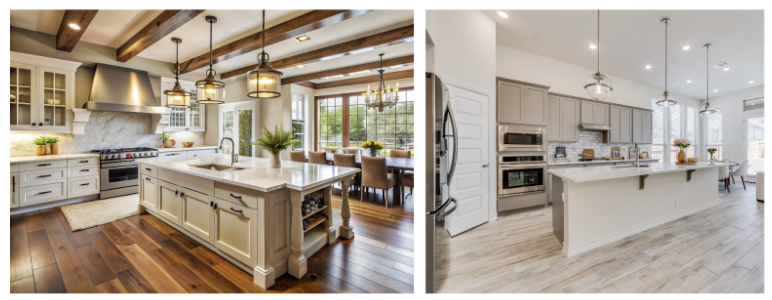
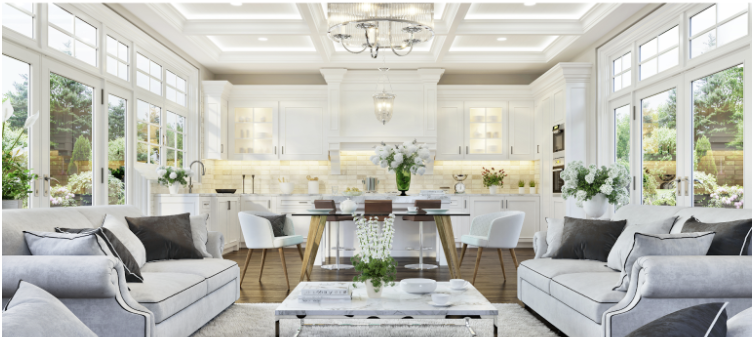
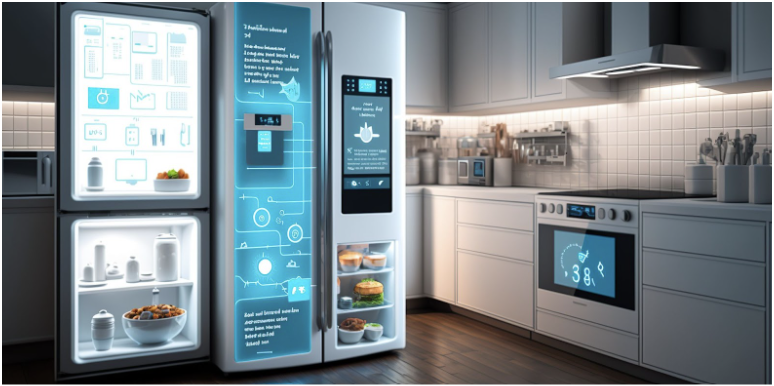
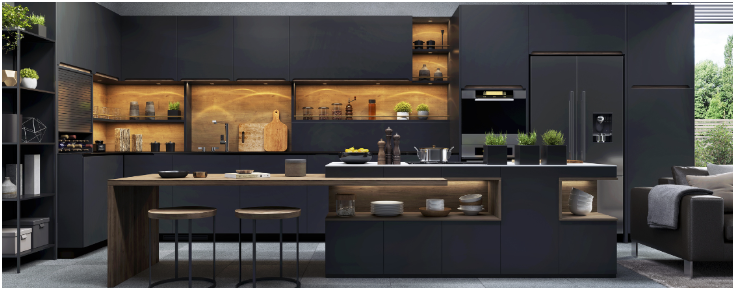
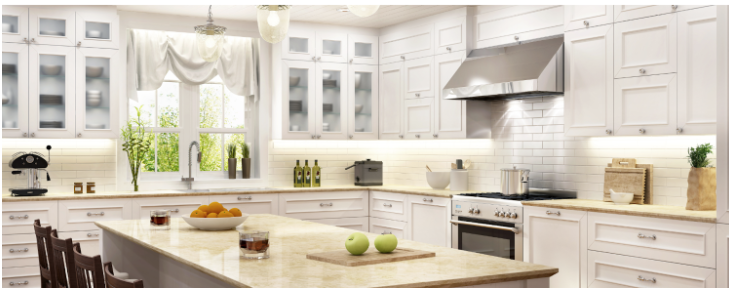





Comments